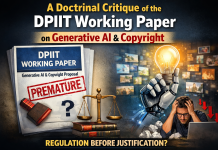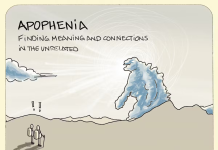The Kerala High Court in O. P. Ashraf v The State of Kerala and Others[1] (can be accessed here) has held that the prosecution could not establish the necessary ingredients which constitute copyright infringement under Section 51(a) of the Copyright Act, 1957, and therefore the High Court has now set aside the conviction of a man for allegedly selling fake audio cassettes.
In this article, we will examine the reasoning behind the Court’s conclusion. Because at a first glance, it would seem that such activities would have been intended as restricted under the Copyright Act, 1957, by the legislators.
Background
The present petition was filed by the accused as a criminal revision petition challenging the judgment passed by the Judicial First Class Magistrate and confirmed by the Sessions Court, Thalessery, Kerala. The judgement by the lower courts had convicted the prosecution under Sections 51(a) and 52A read with Section 63 of the Copyright Act, 1957. The accused now contested these findings through this criminal revision petition.
The accused was caught and arrested on 10th October 2001 (crazy to think how long proceedings go on in India) at approximately 4:00 PM while engaging in the sale of alleged counterfeit audio cassettes (music sold as cassettes without permission of the copyright owner) on the footpath in front of a building, located in Kannur, Kerala. The sale of these music cassettes was alleged to constitute a violation of the Copyright Act, 1957, specifically concerning the unauthorized reproduction and distribution of copyrighted works.
An investigation was carried out by the police. Based on the findings arrived at during this investigation, a final report was submitted, leading to the trial and conviction of the accused. The lower courts found that the evidence presented by the prosecution was sufficient to establish the commission of the alleged offenses. However, the accused contested this conclusion and argued that the prosecution had failed to prove the essential elements of the offenses under Sections 51(a) and 52A of the Copyright Act.
Relevant Sections of the Copyright Act
Before getting into the analysis given by the Court, it is important to understand under what provisions of the Copyright Act, 1957, were the charges placed by the prosecution:
Section 51(a) states that if someone, without permission, uses or allows the use of any work (could be music, films, books, etc.) and therefore uses the rights which were given to a copyright owner under the Copyright Act, then the copyright is considered to be infringed.
On the other hand, Section 52A requires sound recordings and video films to display key details. Sound recordings must include the producer’s name and address, the copyright owner’s name and address, and the year of first publication. Video films must show the Film Certification Board’s certificate (if applicable), the producer’s name and address with a licensing declaration, and the copyright owner’s name and address.
Analysis of the Court
The prosecution allegation is that fake audio cassettes were sold by the accused. The prosecution alleges that the accused sold cassettes containing audios recorded without the licence or authority granted by the owner of the copyright with whom the exclusive right to so is vested.
The Court started by analysing the requirements of each section, and the relevant details given under related sections. It was observed that to attract an offence under Section 51, the prosecution has to establish that the cassettes contained audio records relating to any of the subjects mentioned in Section 2(m).
Note: Section 2(m) provides the definition of an “infringing copy”. An “infringing copy” is any unauthorized reproduction of: (i) literary, dramatic, musical, or artistic works (excluding films), (ii) cinematograph films on any medium, (iii) sound recordings with identical content, or (iv) broadcasts or performances captured in sound or film where rights apply.
The Court also noted that the accounts of witnesses were varied. While some witnesses said that the accused was selling fake cassettes, an independent witness on the scene denied any such activity being carried out.
Judgement
The Court held that the prosecution’s evidence shows the police seized 38 cassettes but lacked knowledge of their contents or the copyright holder. The Court said that the prosecution “did not ascertain who the copyright holder was or whether the copyright holder had retained any exclusive right or whether licence had been granted as mentioned in Section 51 of the Act”.
Thus, the Court held that the prosecution had failed to prove the elements required for an offense under Section 51(a) read with Section 63.
The Court further held in relation to Section 52A, that in order to prove this offense, the prosecution must show that the accused published a sound recording without displaying required details, such as the producer’s name and address, copyright owner’s details, and the year of first publication. The prosecution had failed to prove if the cassettes containing the sound recordings lacked such particulars.
The trial and Sessions Courts overlooked these key points, that the essential elements required under these sections were not proven, making the conviction unreasonable and liable to be set aside.
Conclusion
The reason for the Court’s decision seems to be because there were many laches and failures in terms of the evidence submitted by the prosecution. There was no proper knowledge of whether the sound recordings contained in the audio cassettes were actually infringing copies or if they were sound recordings that were created by the accused himself, or licensed for sale. Without such crucial evidence, there are various possibilities which could not be ignored.
Further, due to this failure to provide evidence that the cassettes contained any particular sound recording, the legal requirement to showcase the copyright owner’s name and address, and the year of first publication, under Section 52A, also was not properly established.
Due to this major lapse of providing evidence, a practice which would otherwise be considered as copyright infringement, was not proven. There are various other cases where providing fake or copied content without appropriate licensing and permission was considered copyright infringement. This exercise of manufacturing and selling CDs, cassettes and other physical records containing songs without appropriate license from the record labels can be termed as “physical piracy” or counterfeiting.[2]
In EBC Publishing Pvt. Ltd. v. Parents Responsibility,[3] a suit was filed by EBC against the sale of counterfeit copies of its books. The Delhi High Court restrained the defendants from directly or indirectly selling or dealing in products and books under the trade marks ‘EBC’ and ‘Eastern Book Company’.
Therefore, any instance of counterfeiting, whether it be songs, books, or films, would definitely be considered as copyright infringement under Section 51 of the Copyright Act, if the essential elements are sufficiently proven.
End Notes
[1] Crl. Rev. Pet 866 of 2022.
[2] https://www.ifpi.gr/physical_en.html.
[3] CS(COMM) 434/2024.
Image generated on Dall-e












